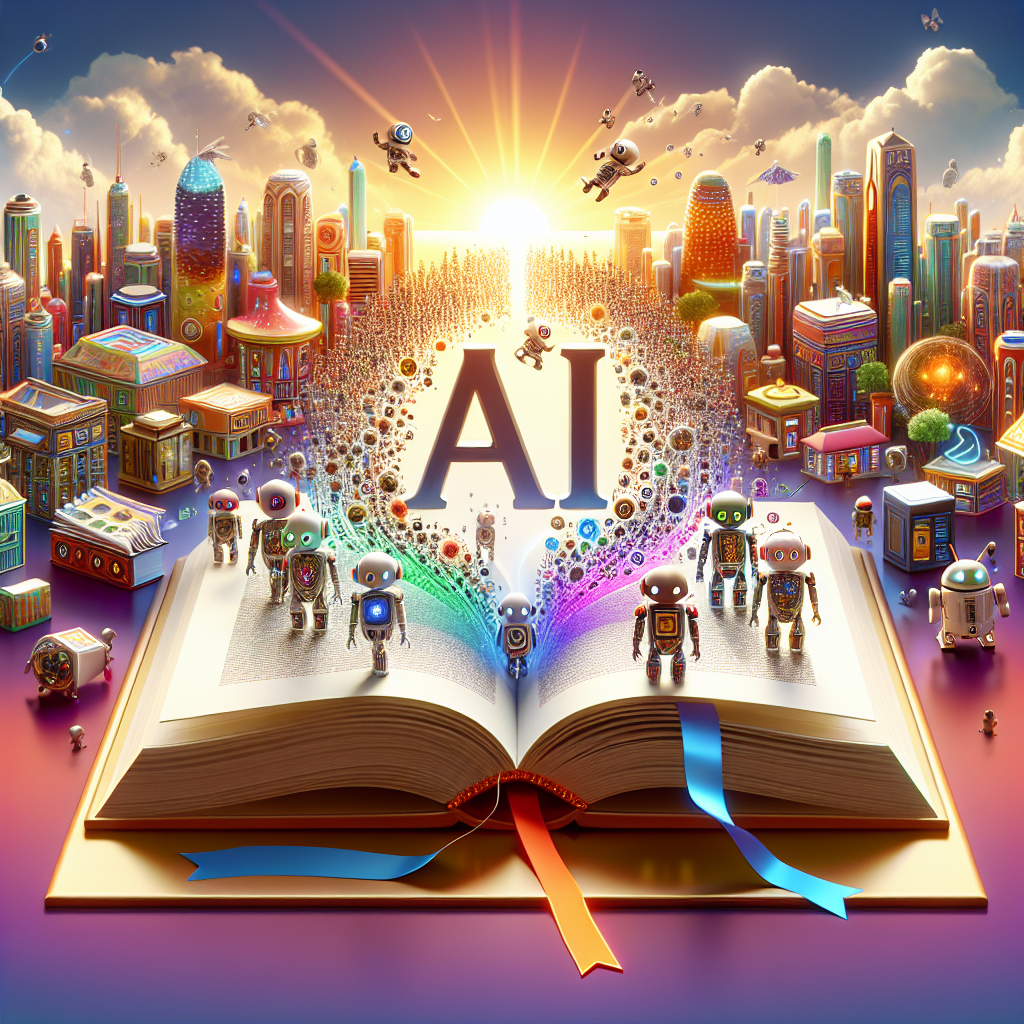In recent years, artificial intelligence (AI) has become one of the most rapidly advancing technologies in the tech industry. What was once considered the stuff of science fiction is now a reality, with AI being used in a wide range of applications, from virtual assistants like Siri and Alexa to self-driving cars and predictive analytics software. However, as AI continues to evolve and become more integrated into our daily lives, there is a growing need for democratization of AI technology.
The democratization of AI refers to the process of making AI more accessible and affordable to a wider range of users. This includes not only tech giants and large corporations but also small businesses, startups, and individuals who may not have the resources or expertise to develop their own AI solutions. By democratizing AI, more people can benefit from its capabilities and contribute to its development, leading to a more inclusive and diverse tech industry.
One of the key drivers of the democratization of AI is the development of user-friendly AI tools and platforms. Companies like Google, Microsoft, and IBM have released AI platforms that allow users to easily build and deploy their own AI models without needing a deep understanding of machine learning algorithms or programming languages. These platforms often come with pre-trained models, drag-and-drop interfaces, and tutorials to help users get started with AI development.
Another important aspect of the democratization of AI is the availability of AI education and training programs. As AI becomes more ubiquitous, there is a growing demand for professionals with AI skills and knowledge. To meet this demand, many organizations, universities, and online platforms offer AI courses and certifications to help individuals learn the fundamentals of AI and develop their expertise in the field. This democratization of AI education is crucial for ensuring that a diverse range of people can participate in and contribute to the AI revolution.
Furthermore, the democratization of AI is also driven by the open-source movement. Many AI frameworks and libraries, such as TensorFlow, PyTorch, and scikit-learn, are freely available for anyone to use and contribute to. This open-access model encourages collaboration and innovation in the AI community, as developers from around the world can work together to improve existing AI tools and create new applications. By making AI resources open and accessible, the tech industry can foster creativity and diversity in AI development.
The democratization of AI has the potential to revolutionize the tech industry in several ways. First, it can democratize access to AI technology, allowing small businesses and startups to leverage AI capabilities to improve their products and services. For example, an e-commerce startup could use AI-powered recommendation engines to personalize product recommendations for customers, leading to increased sales and customer satisfaction. By democratizing AI, companies of all sizes can compete on a level playing field and drive innovation in their respective industries.
Second, the democratization of AI can democratize innovation in the tech industry. By lowering the barriers to entry for AI development, more people can contribute their ideas and expertise to the field, leading to a greater diversity of AI applications and solutions. This democratization of innovation can lead to breakthroughs in areas such as healthcare, finance, transportation, and more, as individuals from different backgrounds and disciplines bring their unique perspectives to AI development.
Finally, the democratization of AI can democratize ethics and accountability in the tech industry. As AI becomes more pervasive in society, there is a growing need to ensure that AI systems are developed and used responsibly. By democratizing AI education and training, more people can become aware of the ethical implications of AI technology and work towards creating AI systems that are fair, transparent, and unbiased. This democratization of ethics and accountability can help prevent issues such as algorithmic bias, privacy violations, and job displacement, ensuring that AI benefits society as a whole.
In conclusion, the democratization of AI is a revolution in the tech industry that has the potential to transform how we develop, use, and regulate AI technology. By making AI more accessible, affordable, and inclusive, we can empower individuals and organizations to harness the power of AI for positive change. As AI continues to evolve and become more integrated into our daily lives, the democratization of AI will be crucial for ensuring that everyone can participate in and benefit from the AI revolution.
FAQs
Q: What are some examples of democratized AI tools and platforms?
A: Some examples of democratized AI tools and platforms include Google Cloud AI Platform, Microsoft Azure Machine Learning, IBM Watson Studio, and Amazon SageMaker. These platforms offer a range of AI services, such as machine learning models, natural language processing, computer vision, and more, to help users build and deploy AI applications without needing specialized expertise.
Q: How can I get started with AI development if I have limited programming skills?
A: There are many resources available online to help you get started with AI development, even if you have limited programming skills. Platforms like TensorFlow Playground, Kaggle, and fast.ai offer tutorials, courses, and interactive tools to help beginners learn the basics of AI and start building their own AI models. Additionally, online courses and certifications from organizations like Coursera, Udacity, and edX can provide a more structured learning path for developing AI skills.
Q: What are some ethical considerations to keep in mind when developing AI applications?
A: When developing AI applications, it is important to consider ethical implications such as algorithmic bias, data privacy, and job displacement. Developers should strive to create AI systems that are fair, transparent, and accountable, by ensuring that training data is diverse and representative, explaining how AI decisions are made, and monitoring and mitigating any unintended consequences of AI technology. Additionally, engaging with stakeholders, experts, and regulators can help ensure that AI applications are developed and used responsibly.

